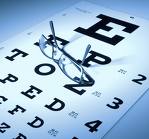General
My child has normal eyesight and hearing, how can you help? 
The majority of students with learning problems have normal eyesight & hearing. This is no guarantee however that they are using their visual and auditory skills normally. For example, a child may be able to read the bottom line on the letter chart (20/20 vision) but only be able to take in a relatively small amount of information per look compared to their peers, or alternatively they may have excellent hearing but struggle to tell the difference between sounds.
Skills such as these relate to visual and auditory development, and are not routinely assessed at school or by most clinicians; consequently they need to be specifically investigated when there is a background of learning problems. The iCept software enables parents or schools to screen for some of the key indicators of visual and auditory development, including eye tracking. If a problem is found they can usually be improved with training. There is scientific evidence to support the view that training these skills improves academic outcomes by removing critical barriers to learning.
How do these problems affect learning?
If a child has poorly developed visual or auditory skills they will have to put in more effort to acheive many of the tasks related to learning. Although it is commonly held that dyslexia is a language based problem – reading begins with vision. Furthermore, in order to decode a word efficiently a student needs to have good listening skills which requires auditory processing.
Will my child out grow these problems?
Like most learned skills visual and auditory development improves with age but whether or not they are considered “normal” depends on how the skills compare with others of the same age. Taking this into account it is not uncommon for visual and auditory deficits to persist into secondary school or adulthood, although some younger students who perform poorly in the auditory testing can improve with age. In most cases bringing the development up to age normal levels requires the student to specifically attend to the relevant skills.
Do your tests diagnose dyslexia?
No. The iCept app tests for visual and auditory deficits. The question of dyslexia is considered to be an educational diagnosis.
Can the problems you describe be fixed?
The problems found in iCept Testing normally have a developmental basis to them which means that they are learned skills. Because they are learned they can also be trained.
Will training these skills improve my child’s learning?
Training can make a significant difference because the skills in question are fundamental to learning. The main caveat to training however is if there is some other over riding deficit that either hinders the skills from being trained (eg. hearing loss) or masks the benefits of the gains that are made.
Eye movement Training Improves Reading Fluency (3m13) – video by Mayo Clinic
Do I need to get my child’s eyes or ears tested first?
An optometry assessment is strongly recommended if multiple visual skills are failed as there may be co-existing problems such as long-sight, reduced near focusing, difficulty coordinating the eyes or visual stress. If your child has passed their school hearing test this should be an adequate basis for auditory training.
Can you recommend an optometrist or audiologist?
Optometrists specializing in children’s vision or behavioural optometry. If you would like further auditory testing, an audiologist specializing in Auditory Processing Disorders (APD) is recommended.
What about tinted lenses?
Some students respond very positively to tinted lenses (often blue, yellow or pink). A key symptom is whether they report “print moving on the page”. The problem of words moving on the page is not the same as an eye tracking problem as students with an eye tracking problem do not report that words move on the page – they report skipping or jumping words and lines when they read. The symptom of moving words persists even if one eye is covered. Although tinted lenses (including Irlen) can be helpful, many students requiring tinted lenses will also benefit from training aspects of their visual and auditory development. Before prescribing tinted lenses, near focusing and binocular skills should be assessed to eliminate other reasons for these symptoms. For more information on tinted lenses click here.
What causes visual and auditory deficits?
Although there is a known genetic basis for dyslexia; prematurity, environmental deprivation, various conditions (eg. autism, ADD/ADHD, dyspraxia etc) as well as trauma and a plethora of other possibilities not well understood (eg. diet & social behaviours) may be associated with developmental delays. In many cases we don’t know why a child presents with perceptual delays affecting visual & auditory skills although a recent study has proposed a lack of sensory eye dominance in dyslexia may hinder the neurodevelopment of their visual skills due to competition occurring between the eyes.
Is dyslexia caused by a problem with the cerebellum?
There is good evidence that the cerebellum is affected but so are a number of other parts of the brain. The treatment offered by the iCept programme targets those regions of the brain associated with a particular skill deficit. The cerebullum itself may possibly be involved with developing the automatic memory for these skills once they have been learned.
